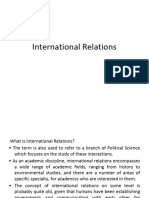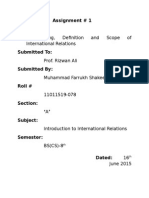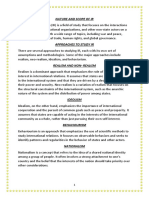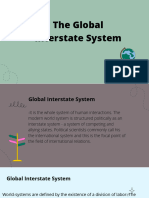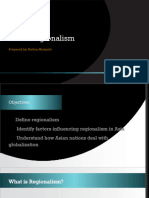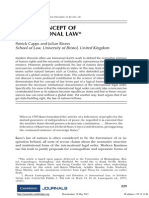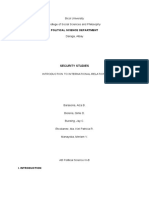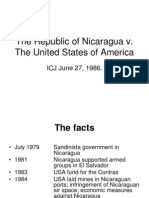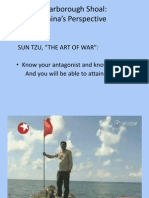0% found this document useful (0 votes)
19 views9 pagesPSIR Internal Notes
International Relations (IR) examines the interactions among governments and various actors, influenced by economics, culture, and politics, covering topics like war, diplomacy, and cooperation. The field is dynamic and interdisciplinary, focusing on state and non-state actors and their behaviors, while emphasizing the importance of power dynamics and continuous interaction. Additionally, elements such as national power, geography, natural resources, diplomacy, and leadership play crucial roles in shaping a nation's capabilities and influence in global affairs.
Uploaded by
adityashetty7461Copyright
© © All Rights Reserved
We take content rights seriously. If you suspect this is your content, claim it here.
Available Formats
Download as PDF, TXT or read online on Scribd
0% found this document useful (0 votes)
19 views9 pagesPSIR Internal Notes
International Relations (IR) examines the interactions among governments and various actors, influenced by economics, culture, and politics, covering topics like war, diplomacy, and cooperation. The field is dynamic and interdisciplinary, focusing on state and non-state actors and their behaviors, while emphasizing the importance of power dynamics and continuous interaction. Additionally, elements such as national power, geography, natural resources, diplomacy, and leadership play crucial roles in shaping a nation's capabilities and influence in global affairs.
Uploaded by
adityashetty7461Copyright
© © All Rights Reserved
We take content rights seriously. If you suspect this is your content, claim it here.
Available Formats
Download as PDF, TXT or read online on Scribd
/ 9

























